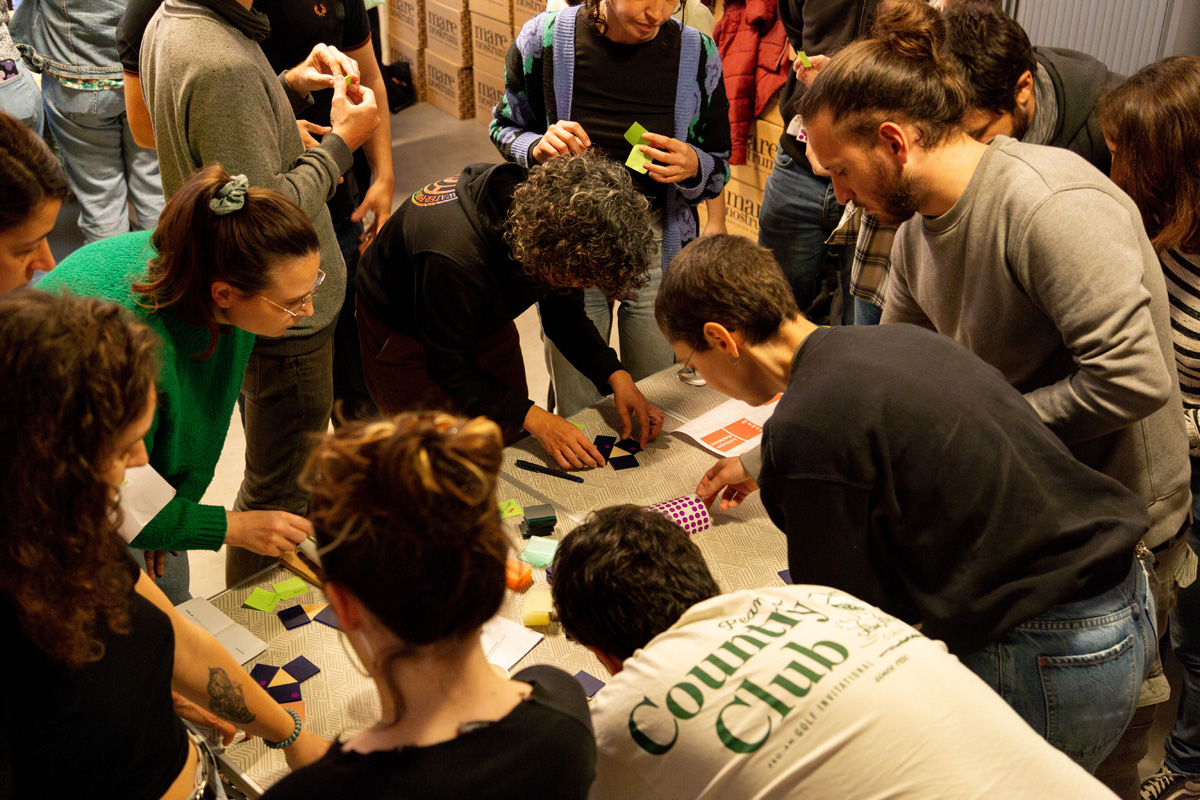The co-creation workshop is a methodology that applies non-linear decision-making processes to ideating, implementing and evaluating urban space initiatives. Its goal is to develop projects and knowledge collaboratively through participatory methods, enabling a strong foundation for long-term collaboration.
This tool operates as a structured dialogue space designed to harness collective intelligence and foster horizontal participation. It is especially effective for addressing complex social challenges that require pluralistic and holistic approaches.
